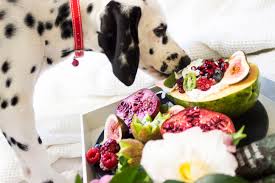No products in the cart.

Firstly, introducing Auscrops, a high-tech market vending company bridging farmers and customers together through market vendors. Click here to find out more about Avocado For Dogs as well fruit and vegetable offers.
Avocado For Dogs
In our health-conscious world, we’re always on the lookout for nutrient-dense foods. For humans, this green delight is often hailed as a superfood. Nonetheless, a pressing question remains: Is it just as super for our furry pals?
Deciphering the Fruit
Loaded with vitamins, minerals, and good fats, it’s a dietary staple for many. Additionally, its creamy texture and taste have made it popular in various dishes. Furthermore, with an increasing number of dog foods touting “natural” and “wholesome” ingredients, it’s no wonder many dog owners are curious about incorporating such foods into their pet’s diet.
Potential Hazards
While the flesh of this fruit might seem harmless, it contains a substance called persin. In larger quantities, persin can be harmful to dogs. Additionally, the seed is not only a choking hazard but could cause blockages if ingested.
Moreover, the skin and leaves of the plant are particularly toxic to canines. Hence, even if you’re considering giving the pulp to your pet, extreme caution is necessary.
Vet’s Take on the Matter
A majority of veterinarians advise against sharing it with dogs. Additionally, while some dogs might tolerate small amounts, others might be more sensitive. The risks, some argue, outweigh the benefits. Furthermore, there are plenty of dog-friendly fruits like blueberries and apples that can be safely shared.
Signs to Watch Out For
If a dog consumes a harmful amount, they might show signs like diarrhea, vomiting, and abdominal discomfort. Moreover, in extreme cases, breathing difficulties or fluid accumulation around the heart might occur. If such symptoms appear, it’s crucial to seek veterinary care immediately.
In Summary
While we’re continually discovering new health foods and expanding our dietary horizons, it’s essential to remember that not everything fit for human consumption is suitable for our pets. Our four-legged friends have unique dietary needs and sensitivities. Nonetheless, with a plethora of safe and nutritious alternatives available, there’s no need to risk it. Ensure your pet’s safety by consulting with your vet before introducing any new foods, and always opt for those that are known to be dog-friendly. After all, our furry pals deserve the best!
Click here to read similar articles.
 Français
Français 










